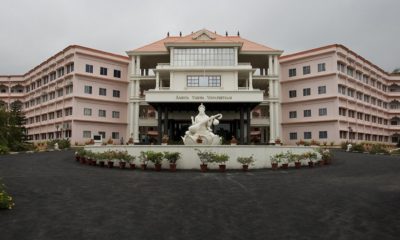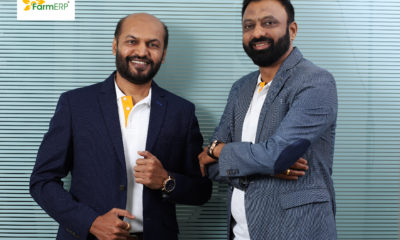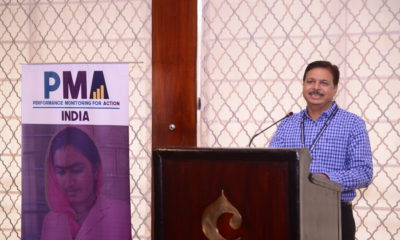Colleges
Women make up 43% of the agricultural labour force in the developing world
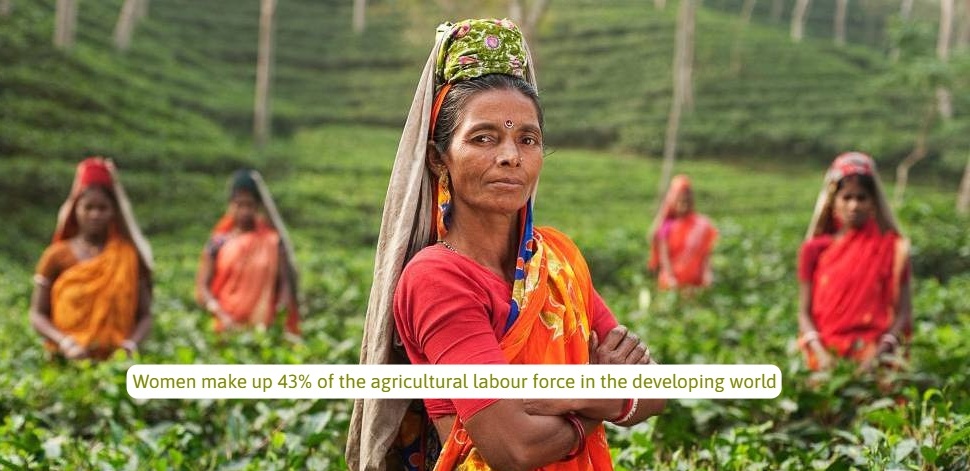
School of Development Studies, IIHMR University with the support of The Coalition of Food and Nutrition Security, New Delhi conducted 2nd National Conclave on Women Empowerment: Impact on Maternal and Child Nutrition.

- The highest risk factor for stunting in India is no education of mothers
- The direct relation between nutrition and women empowerment
- Women make up 43% of the agriculture labour force in the developing world, share rising to 50% in Asia and sub-Saharan African countries
- 60% of the worlds chronically hungry people are women and girls

IIHMR University a leader in higher education, training, research, and a hub in the public health domain conducted a 2nd National Conclave on Women Empowerment: Impact on Maternal and Child Nutrition.
The Conclave focused on ‘Challenges and Opportunities for Development Management Professionals in post COVID transactions’.
The objective of the 2nd National Conclave was to understand the economic development and political challenges faced by the country due to COVID-19 and the strategy to get over them –
- To create awareness among the aspirants’ development and management students about the various opportunities which came up due to the pandemic.
- To deliberate on the future roadmap as to how the management professionals should gear up to face the challenges thrown by the pandemic with special reference to maternal and child nutrition and ultimately women empowerment.
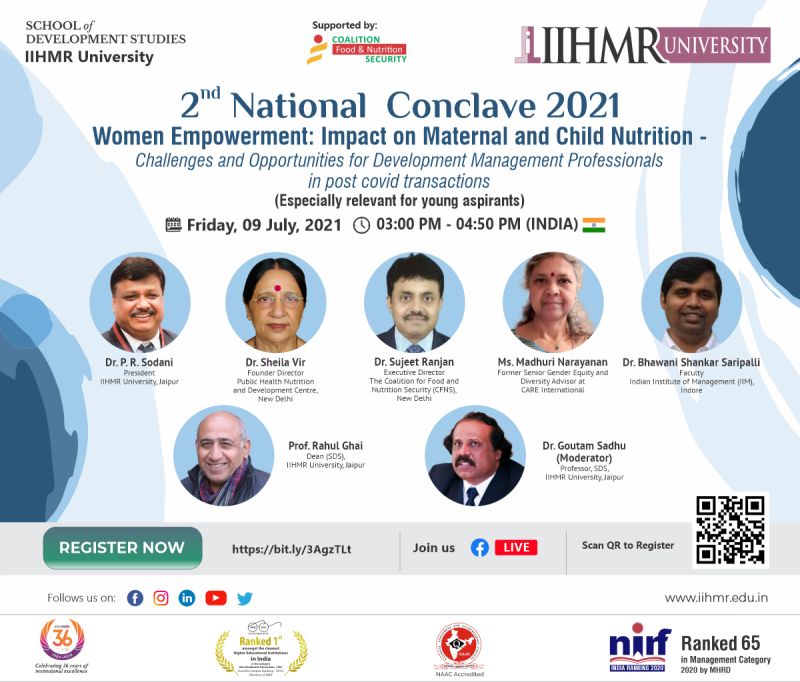
Distinguished speakers on the panel were Dr. P.R. Sodani, President IIHMR University, Dr. Sheila Vir, Founder Director Public Health Nutrition and Development Center, New Delhi, Dr. Sujeet Ranjan, Executive Director, The Coalition of Food and Nutrition Security, New Delhi, Ms. Madhuri Narayanan, Former Senior Gender Equity and Diversity Advisor, CARE International, Stationed at Sweden and Dr. Bhawani Shakar Saripalli, Faculty IIM Indore.

Dr. Goutam Sadhu, Professor, IIHMR University, said, “The 2nd National Conclave on Women Empowerment: Impact on Maternal and Child Nutrition was conducted to understand these challenges and how to overcome these barriers.
Inadequate nutrient intake early on and multiple pregnancies, poverty, caste discrimination, and gender inequality contribute to poor maternal nutrition in India. While malnutrition is seen throughout the life cycle, it is most acute during childhood, adolescence, pregnancy, and lactation.
Nutrition problems especially protein-energy malnutrition, Anaemia, Vitamin A deficiency continue to plague a large proportion of Indian children.”
“The diets & nutritional status of children in India is far away from being satisfactory.
Factors that would improve the nutritional status of children in India that need to be addressed are, nutritional status of women preconception and during pregnancy, infant and young child feeding (IYFC) practices, dietary intake of children and lactating mothers, and availability of safe, clean drinking water, sanitation, and hygiene facilities.” He further added.
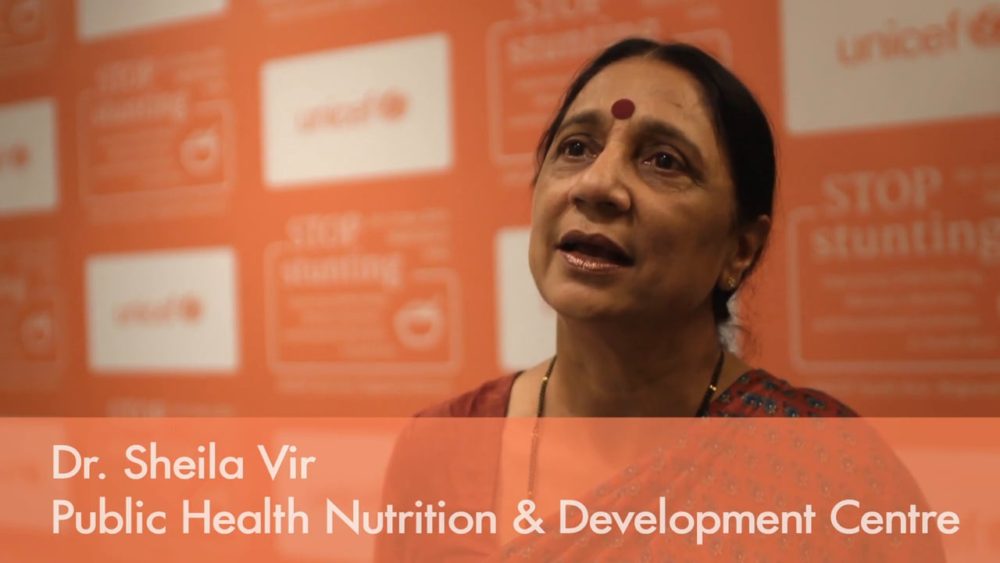
Dr. Sheila C Vir, Founder, Director Public Health Nutrition and Development Center, New Delhi spoke on Women Empowerment, Women’s Nutrition and Child Stunting and said, “There is a strong relationship between women empowerment and women’s nutrition which also has an impact on women nutrition and child nutrition.
There have been studies on the current situation and way forward and how women empowerment affects child care practices.
There is evidence that poor nutrition impacts not just maternal mortality but childhood stunting, poor women who lack resources have low nutrition that adversely impacts early childcare that in a way contributes to stunting.”
“There has been evidence on poor women’s nutrition that impairs fetal development which contributes to low birth rate and increases the risk of stunting. When there is improvement in BMI, the birth rate improves.
Prevention of undernutrition in children can help to reduce height stunting amongst them. 1cm increase in maternal height will significantly decrease underweight mortality stunting in children.
Child undernutrition has implications on adolescent nutrition, has implications on maternal nutrition and birth weight.” She added.
Women, when empowered, will lead to various positive factors such as good nutrition, adequate energy, and resources during her pregnancy which will have a good birth outcome. Women will have better child care practices when empowered, the decision-making power will improvise which leads to better child feeding practices.
Thus there is a direct relationship between nutrition and Women Empowerment.
Dr. Vir highlighted the highest risk factors associated with stunting in young children in India, Bangladesh and Nepal.
She said, “The highest risk factor in India is no education of mothers, this is one of the key aspects and thus it needs focusing on the empowerment of mothers.
In Bangladesh, the risk factors for stunting are, domestic violence, lack of secondary education, low decision-making power, in Nepal it is open defecation, lack of ANC visits, and more.”
“Women must be empowered to be well informed on the entitlement of facilities, health services, maternity protection, clean water, sanitation, and time and energy-saving devices, must have independent bank accounts, and have access to technology.
There has been the strongest evidence of a positive impact on child nutrition in South Asia.”, She added further.
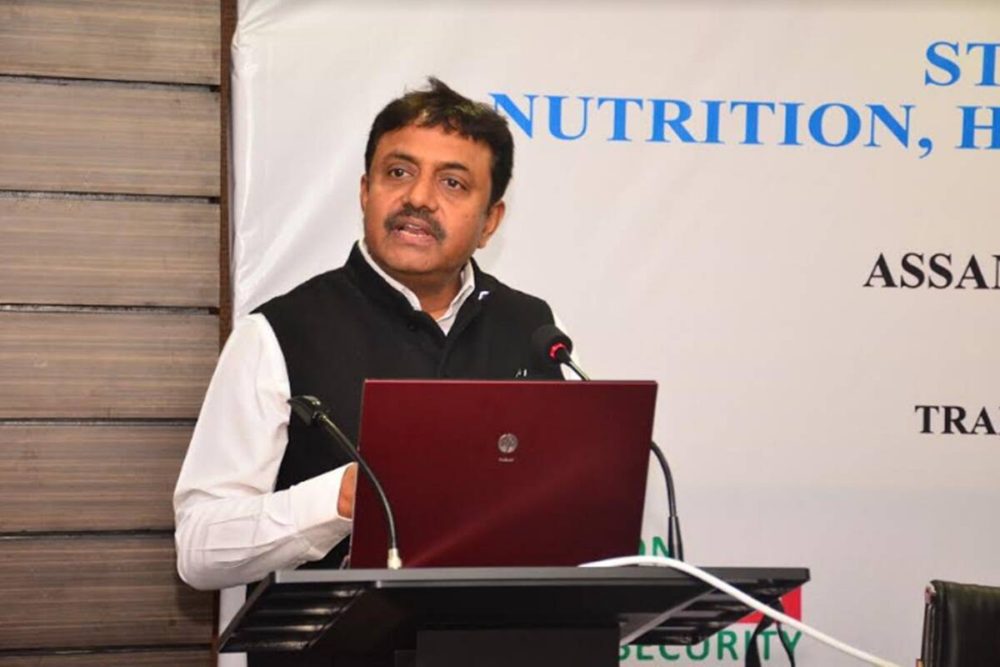
Dr. Sujeet Ranjan, Executive Director, The Coalition of Food and Nutrition Security, New Delhi spoke on the Challenges and role of a national and international development organization in Maternal and Child Nutrition in the COVID-19 pandemic situation.
He said “The role of national and international development organizations in ensuring food and nutrition safety is very crucial. Amid negativity, Development organizations will have a silver lining in the years to come.
The Pandemic is an opportunity to reform the entire public health sector by boosting the Public-Private Partnership, boosting the data culture, strengthening and convergence through a single-window system where services can reach the most vulnerable people, engaging the community by building capacities to take care of the health and nutrition at the community level and engage the private health service providers.”
“Key challenges such as lack of skilled human resources, willingness to acknowledge technological interventions, difficulty in convincing the policymakers, lack of funding and dedicated nutrition, ensuring safety and precautionary measures for service providers and remote access by the community, lack of reliable and quality data, new norms of FCRA making it difficult to get foreign money.”, He further continued.
Dr. Ranjan further indicated that India simply cannot afford backsliding on the momentum and energy around tackling malnutrition. It is not possible for the Govt. alone to holistically address the issues and the challenges that have been laid by the pandemic.
Malnutrition has been an existing challenge that we have been battling that has also affected the course of the pandemic. The intersection of nutrition and COVID-19 is unchartered territory even today. Malnutrition has been an important indicator even in the 17 SDGs and has been recognized as a problem.

Ms. Madhuri Narayanan, Former Senior Gender Equity and Diversity Advisor, CARE International, Stationed at Sweden spoke on understanding the importance of achieving gender equality and women’s empowerment (SDG5) to ensure food security and improved nutrition (SDG2).
She said, “Food and nutrition security are interlinked and to achieve both women’s empowerment and gender equality forms the center. Women make up 43% of the agricultural labour force in the developing world.
The major cause of poverty and food nutrition insecurity is gender-based discrimination or denial of women’s human rights. Women’s share is rising to 50% in Asia and sub-Saharan African countries. They perform the important roles of food producers, managers of natural resources, and income earners.”
“Despite all the above aspects, 60% of the world’s chronically hungry people are women and girls. Women do not have access or freedom to own lands and this depends on their association with the family.
Social capital is not helping them to change relationships. Women are not homogenous, they have to face cumulative discrimination while we speak of groups, as exclusion can also happen. Women participation in institutions that cause social impact is less.”, Ms. Madhuri Narayanam further elaborated.
Dr. Bhawani Shakar Saripalli, Faculty IIM Indore, spoke on future roadmap and strategy as to how the management professionals should gear up to face the COVID-19 pandemic and challenges with specific reference to maternal and child nutrition.
He discussed three models which include Model 1 – Government initiative, Model 2 – Corporate Initiative, and Model 3 – NGO Initiative.
He said, “Speaking of the models for promoting maternal and child nutrition, along with opportunities and challenges – malnutrition increased significantly among children in 22 states and union territories between 2015-16 and 2019-2020 as per NFHS 2020 report.
About 50% of children under 5 years were found to be stunted, too small or wasted (too thin) for their height as per UNICEF 2019 report. A staggering 68% i.e 1.04 million deaths of children under 5 years was malnutrition as per Lancet 2019 report.”
“As per the Food and Nutrition Security Analysis 2019, intergenerational transmission of poverty and malnutrition was observed in the country, here the COVID lockdowns further worsened the scenario.
Various Govt. initiatives such as Poshan 2.0, Aanganwadi services, Supplementary Nutrition program, Poshan Abhiyan Scheme for Adolescent Girls strengthened the nutritional content, delivery, outreach; an outcome with a renewed focus on developing practices that nurture health, wellness, and immunity to disease and malnutrition in the country.” He further discussed.
Dr. Bhawani Shakar Saripalli, Faculty IIM Indore also added, “It is important to align the players, sectors and drivers, Model 1: Poshan Abhiyan, Beti Padhao Beti Bachao campaigns by the Govt.
Model 2, CSR initiatives, which is the Tata Trusts Corporate Initiative which covers 48 Lakh individuals in 13 states.The initiative works closely with agencies to address the micronutrient deficiency. This initiative also supports the infrastructure, data, and advisory services for policy advocacy.”
“The trust can however look at revisiting the site areas and study the nutrition status, create local groups/systems that would spread awareness about nutrition importance, and create an eco-system to hand over the project to a local agency for the seamless takeover of the project.
The third model is an NGO-led initiative wherein the organization is vocal in establishing seed banks, providing rights to women, taking up activities by utilizing local resources.” He continued.
Dr. Bhawani Shakar Saripalli further informed that the Finance Ministry has earmarked an estimated budget of $2.74 billion for FY21-22 compared to FY20-21 expenditure of $2.58 billion.
The major challenges are merging schemes which may appear as a better way of spending resources, COVID-19 has been overshadowing efforts in nutrition due to its enormity and there is a need for significant budgets which are needed to improve health and nutrition services.
The conclave witnessed participants from all over India and countries abroad which ranged from Development Managers, Program Leaders, Public Health and Development Professionals, Civil Society Organisation, CSRs, Academicians, and others.
Dr. Goutam Sadhu, Professor School of Development Studies moderated the conclave and Prof. Rahul, Ghai, Dean- School of Development Studies from IIHMR University, Jaipur delivered the keynote address.
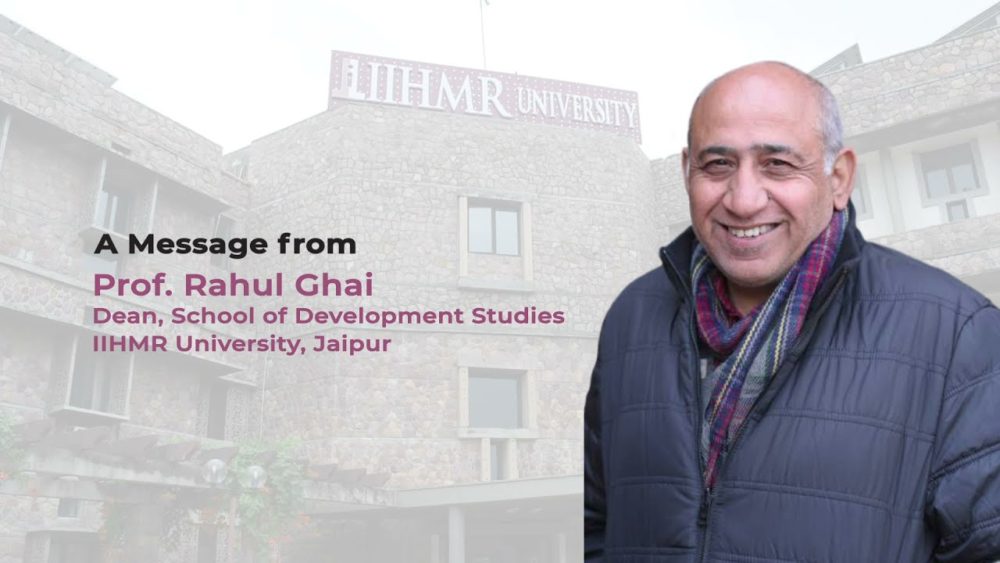
Prof Rahul Ghai expressed his gratitude for the presence of the distinguished speakers.
He said, “The School of Development studies tries to widen the definition and experience of health in the widest ambit of wellbeing.
The SDS was created to serve as a bridge between cutting-edge research on issues of development, and the burgeoning network of civil society organizations and development agencies (including governmental, CSR, and multilateral agencies) functioning in India and abroad.”
MEDIA RELEASE



